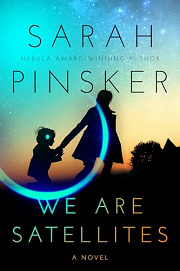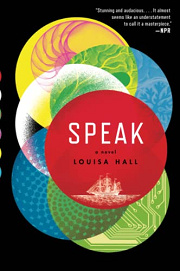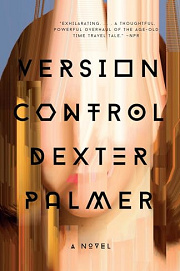Share your thoughts in a quick Shelf Talk!
We Are Satellites by Sarah Pinsker
A sleek brain implant promises focus, speed, and a competitive edge—until one family discovers the hidden costs of staying connected. As pressure mounts at school, work, and politics, their choices ripple outward in unexpected ways. We Are Satellites is a gripping near-future tale about technology, privilege, and the bonds that hold us together.
Have you read this book? Share what you liked (or didn’t), and we’ll use your answers to recommend your next favorite read!
Love We Are Satellites but not sure what to read next?
These picks are popular with readers who enjoyed this book. Complete a quick Shelf Talk to get recommendations made just for you! Warning: possible spoilers for We Are Satellites below.
In We Are Satellites, did you enjoy ...
... the near-future tech reshaping an ordinary family’s choices and love?
Tell The Machine Goodnight by Katie Williams
If the Pilot implant’s promise of effortless productivity—and the way it pulls at Julie, Val, David, and Sophie in different directions—hooked you, you’ll love how Tell the Machine Goodnight explores a device that prescribes “happiness” and the tender chaos it creates in one family. Like watching David chase advantage while Sophie resists the pressure to conform, you’ll follow Pearl and her son as they weigh quick fixes against the messy, real work of being human.
... the intimate, human-scale focus on relationships while technology quietly upends their fate?
Never Let Me Go by Kazuo Ishiguro
You appreciated how We Are Satellites keeps the lens tight on Julie, Val, David, and Sophie—the arguments at the dinner table, the secrets around the Pilot—rather than zooming out to a global spectacle. Never Let Me Go offers that same intimate closeness: Kathy, Ruth, and Tommy’s friendships and loves unfold in small rooms and quiet fields, all while a chilling biotech reality shapes their futures just offstage.
... watching one invention ripple across different lives and eras?
Speak by Louisa Hall
If you liked seeing the Pilot from every angle—David’s adoption, Sophie’s medical disqualification and activism, Julie’s work intersecting with public policy—you’ll be drawn to Speak. It braids multiple voices across time to show how a single innovation in artificial companionship transforms the people who build it, sell it, and live with its consequences, echoing the multifaceted view you got of the implant’s fallout.
... a queer family navigating identity, agency, and change in a soft, speculative world?
The Seep by Chana Porter
Part of the power of We Are Satellites is how a queer household contends with the Pilot—how Julie and Val try to protect both David and Sophie while disagreeing about what safety and success look like. The Seep offers a similarly inclusive lens as Trina faces a utopian technology that promises easy transformation; its questions about autonomy, assimilation, and love will resonate with the family tensions you felt around the implant.
... the candid, emotionally rich interior lives under the strain of innovation and compromise?
Version Control by Dexter Palmer
If you were compelled by the way We Are Satellites sits inside each character’s head—the guilt, ambition, and fear as the Pilot reshapes the family—Version Control digs just as deeply. Following Rebecca and her physicist husband as an experimental device bends possibility and marriage alike, it captures the same knotty self-justifications and reckonings that Julie, Val, David, and Sophie face.
Unlock your personalized book recommendations! Just take a quick Shelf Talk for We Are Satellites by Sarah Pinsker. It’s only a few questions and takes less than a minute.





